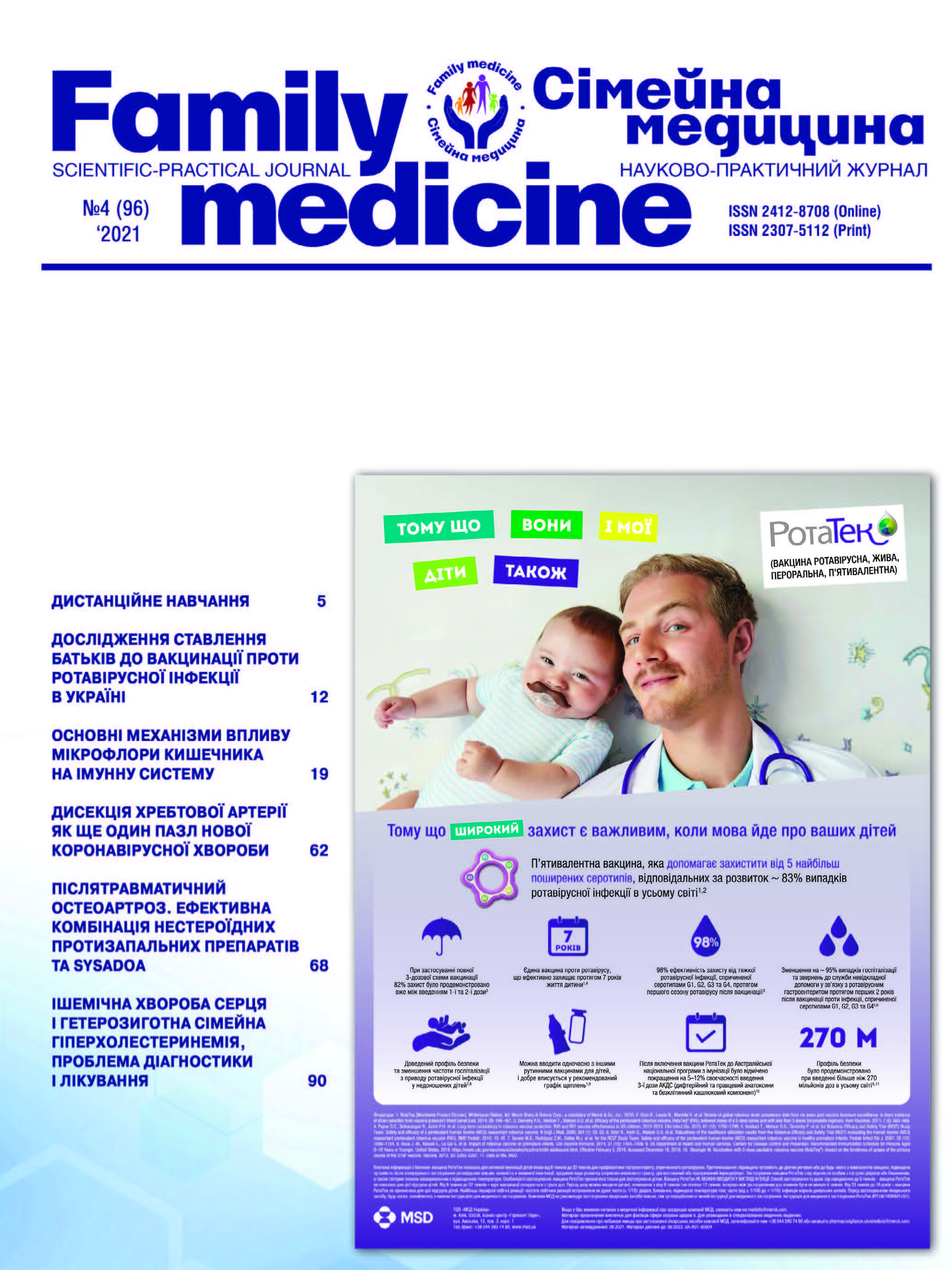Holistic Approach in Formation of Communicative Competence of Future Doctors
##plugins.themes.bootstrap3.article.main##
Abstract
.
It is well known that effective communication of family doctor with patient leads to the development of the trusting long term relations, which is the necessary part of the primary care specialist work. That’s why the development of the communicative skills is important during medical education.
The objective: to improve the communication skills acquisition by medical students through the use of the holistic approach in teaching.
Materials and methods. Еhe staff of the Department of Primary Healthсare and General Practice-Family Medicine developed and introduced into the educational process an optional discipline «Communication skills in medical practice»
Results. Based on the analysis of the survey results of students at the end of the studying the selective subject of “Communicative Skills in Medical Practice” we identified the main andragogical methods and forms of teaching that would correspond to the holistic direction in education. According to our research, the work in small groups, Storytellling, role play is the most valid form of teaching for communication skills, which would be based on the individual needs, feelings and values of every student.
A holistic approach of teaching motivates students to continue studying communication skills based on modern learning technologies. Thus, using a holistic educational concept, it is possible to improve the communicative competence of future doctors, to lay the foundations for understanding the need for continuous self-improvement and self-education throughout the professional medical activity.
Conclusion. The holistic direction in teaching promotes partnership between a student and a teacher, the achievement of mutual understanding and trust, better commitment and motivation to learn. The use of feedback forms helps to recognize and understand the needs and feelings of each student, work effectively with diversity, motivates the teacher to continuous self-development and self-improvement.
Modern teaching methods such as working in small groups, Storytellling and role-play according to students are more valid in mastering the communicative competence of the future doctor.
##plugins.themes.bootstrap3.article.details##

This work is licensed under a Creative Commons Attribution 4.0 International License.
Authors retain the copyright and grant the journal the first publication of original scientific articles under the Creative Commons Attribution 4.0 International License, which allows others to distribute work with acknowledgment of authorship and first publication in this journal.
References
Kinash I.O. Formuvannia komunikatyvnoi kompetentnosti maibutnikh likariv na etapi profesiinoi pidhotovky [Formation of communicative competence of future doctors at the stage of professional training]. Medychna osvita, Medical education. 2020; 3: 84–8.
Trambovetska Nataliia. Abetka fasylitatsii «Tobto» Kyiv: HO «Insha Osvita», 2017. – 53 р.
Shulha N.V. Kholistychnist – providna tendentsiia rozvytku osvity [Holism – the leading trend of education] //Science and Education a New Dimension. Pedagogy and Psychology. 2015; III (37):84-7.
Ali NB, Pelletier SR, Shields HM. Innovative curriculum for second-year Harvard-MIT medical students: practicing communication skills with volunteer patients giving immediate feedback. Adv Med Educ Pract, May 2017; 19(8):337-45. DOI: 10.2147/AMEP.S135172.
Amankwah, Dinah. Handling Communication Skills: the Holistic approach. Conference: First National Conference and Workshop on Academic Writing/Communication Skills Programs in Ghanaian Higher Education At: University of Cape Coast, Cape Coast, Ghana, W/R. 2015.
Haq C., Steele D.J., Marchand L., Seibert C., & Brody D. Integrating the art and science of medical practice: innovations in teaching medical communication skills. Family medicine. 2004; 36 Suppl, 43–50 р.
Henry SG, Holmboe ES, Frankel RM. Evidence-based competencies for improving communication skills in graduate medical education: a review with suggestions for implementation. Med Teach. May 2013;35(5):395-403. DOI: 10.3109/0142159X.2013.769677. Epub 2013 Feb 27.
Shochet R, King J, Levine R, Clever S, Wright S. ‘Thinking on my feet’: an improvisation course to enhance students’ confidence and responsiveness in the medical interview. Educ Prim Care. Feb 2013;24(2):119-24. DOI: 10.1080/14739879.2013.11493466.





